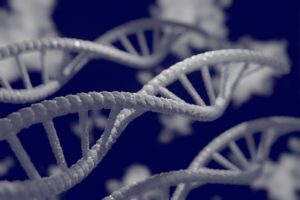
Hangovers are interesting. There are endless folk cures for them around the world, but it wasn’t until recently that medical experts started discovering the true cause behind them. To understand hangovers more deeply, take a look at the way our body breaks down alcohol and how a chemical called acetaldehyde is responsible for how you feel after a night of too much drinking.
What about Acetaldehyde?
 Acetaldehyde is the substance that is responsible for the greater part of your hangover. Acetaldehyde (pronounced ass-uh-tal-duh-hyde) is a toxin that your body creates as it tries to break down alcohol.
Acetaldehyde is the substance that is responsible for the greater part of your hangover. Acetaldehyde (pronounced ass-uh-tal-duh-hyde) is a toxin that your body creates as it tries to break down alcohol.
When you drink, your body recognizes alcohol as a dangerous substance which it sends to the liver to filter. The liver then takes the alcohol and breaks it down into acetaldehyde so that two other enzymes can then turn it into a non-toxic acid similar to vinegar.
The body is then able to flush the vinegar-like by-product out of its system and rid itself of harmful toxins.
How Does It Cause A Hangover?
When the liver creates acetaldehyde, it uses the two other enzymes mentioned above to turn it into a non-toxic acid. The problem with this system, however, is that the body only has a short supply of those two enzymes, and that supply decreases with age. When someone overindulges in alcohol, which threshold becomes less and less with age, the body is unable to rid itself of all the acetaldehyde it produces.
The acetaldehyde is then filtered back through the bloodstream. The acetaldehyde is then absorbed by other cells in the body, including the brain, nervous system, and other crucial organs, which can cause the cells to stop working properly.
Understanding Inflammation
 One of the most severe effects of acetaldehyde running rampant through your body is inflammation, which is only made worse by the fact that the alcohol blocks a receptor in your brain that conserves water.
One of the most severe effects of acetaldehyde running rampant through your body is inflammation, which is only made worse by the fact that the alcohol blocks a receptor in your brain that conserves water.
This is why you have to pee so much after a night of heavy drinking, but depleting your body’s water supply, which it uses to fight off inflammation, creates even more inflammation.
What’s more, the acetaldehyde continues filtering through the liver until it is all excreted, which puts great strain on the liver to produce more enzymes.
A hangover is a result of the damage which dehydration and acetaldehyde both create. Results of inflammation and dehydration include:
- Dizziness
- Vomiting
- Forgetfulness
- Headache
- Organ failure
- Low blood sugar levels
How to Fix It
 Once you are drunk, there is no way to cure this beyond letting the body run its course. Hangovers, however, are completely manageable. The inflammation that creates a headache, body pains, and stomach aches can be mitigated by rehydrating the body.
Once you are drunk, there is no way to cure this beyond letting the body run its course. Hangovers, however, are completely manageable. The inflammation that creates a headache, body pains, and stomach aches can be mitigated by rehydrating the body.
For other organ failures, there are other antioxidants that can help restore cell function and relieve the damage acetaldehyde creates as it wreaks havoc on the body.
Hangover hospital works at helping overcome the effects of acetaldehyde and dehydration by providing IV saline drips and a mix of antioxidant therapies. These not only help to combat the effects, but they also have restorative properties that help you feel better in less than an hour. Call Hangover Hospital to relieve your hangovers after a night of too much partying in Key West.
